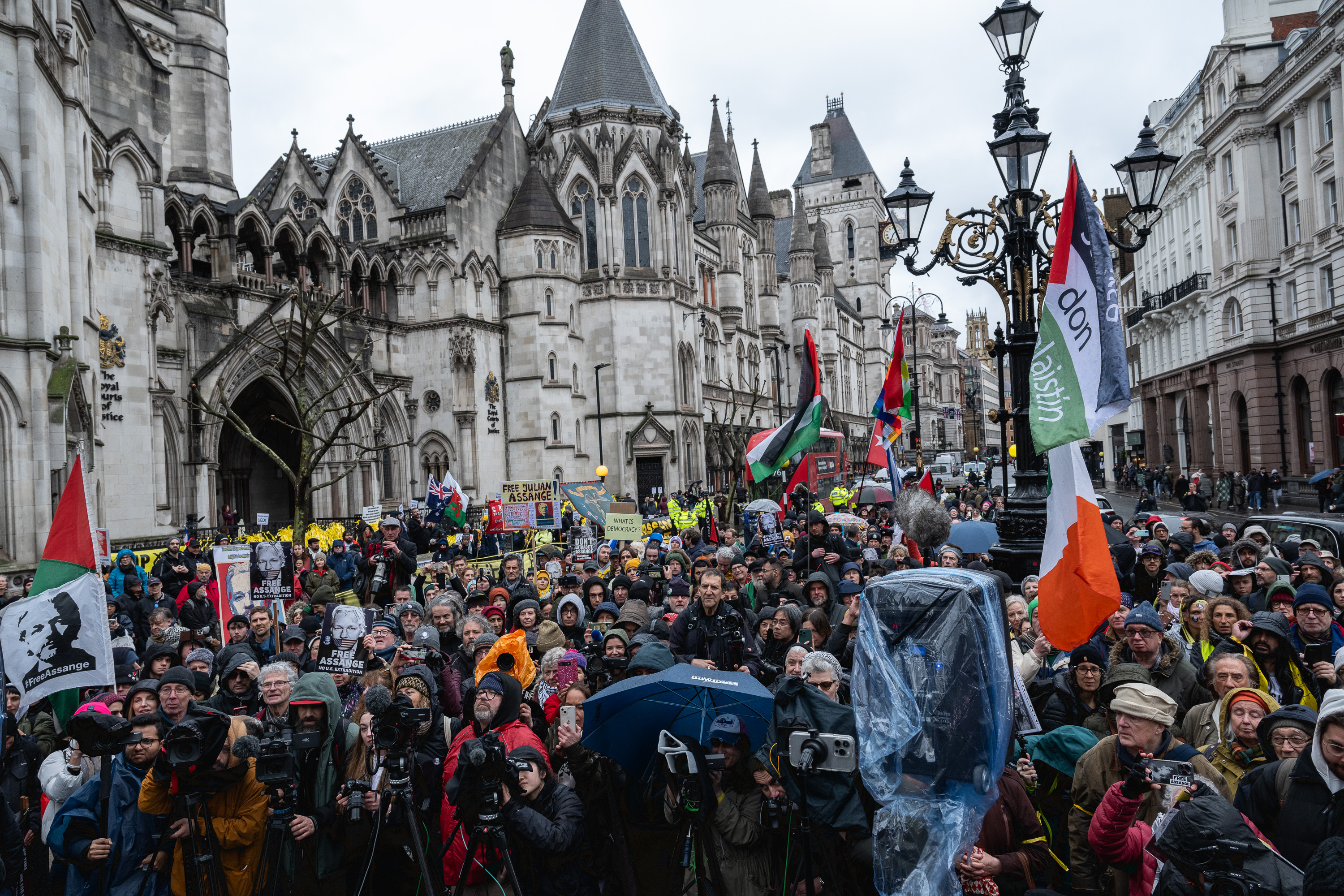Assange Court Report: February 21 - afternoon

Lack of extradition safeguards revealed in final session of Assange hearing
The hearing that could mark WikiLeaks Publisher Julian Assange’s final opportunity to oppose his extradition to the United States closed on Wednesday with no announcement of a date for the judges’ decision.
During the afternoon session, the lack of protections Assange would face in the case of extradition became the subject of a series of probing questions from one of the judges who will determine that decision. A lawyer representing the Secretary of State for the Home Department (SSHD) told the court that the latter “has limited powers to prevent extradition in this case”. According to the barrister, consideration of any rights in the Treaty, such as the political offence exception, that are not explicitly incorporated into UK legislation is not at discretion of the SSHD.
On the issue of potential changes to the charges Assange faces once he is extradited – something that is usually prohibited in extradition cases - Mr Justice Johnson asked the Secretary of State’s representative if there is any safeguard to prevent this happening. The lawyer confirmed that there were not.
Probing further, Mr Justice Johnson asked if the SSHD’s representative accepted that some charges that might be added in the future could lead to the death penalty. The lawyer said he accepted that risk in principle. Mr Justice Johnson then asked clarifications on whether there was a way to prevent death penalty.
“It would be very difficult to offer assurances that prevent death penalty from being imposed,” said the lawyer. However, “This does not mean the Secretary of State was wrong” when she authorised extradition.
Later, Mark Summers KC, representing Julian Assange, gave his own response on this issue. “We don’t understand why there is no usual death penalty assurances in this case,” he said. The consequence, Summers argued, is that - given the UK’s opposition to the death penalty - discharge of the extradition “must follow” if the US refuses to give such assurances.
Joel Smith KC, for the Government of the United States, told the judges that “imposing UK sentencing policy” on the United States is not part of the function of the UK courts. Smith also said that Assange encouraged sources to circumvent legal safeguards on information and build a pattern of “illegally procuring and providing” classified information to Wikileaks for distribution to the public.
Responding to the arguments of the US and the SSHD, Edward Fitzgerald KC countered the suggestion that the political offence exception to extradition, enshrined in the UK-US Extradition Treaty but not provided for in the latest domestic Extradition Act, was outmoded, or that Parliament had actively decided to do away with it.
“This country continues to sign treaties that provide that bar,” which also forms part of model extradition agreements produced by the UN and Interpol. The US is “seeking extradition on the basis of UK-US extradition Treaty”, which formed the basis of Julian Assange’s detention, so one “can’t escape the treaty.”
Mark Summers KC, for Julian Assange, told the court that the respondents had simply not answered the arguments put to them. It was “impressive” that the respondents had opined on the limits of responsible journalism for two hours without mentioning that the revelations at issue here were state crimes of the highest order.
He said it was not surprising that Clair Dobbin could not give a convincing answer on what should happen in a case where secret information had been solicited and published, and where redaction had taken place. The European Court of Human Rights in Strasbourg’s Article 10 case law required that a balancing of interests take place, even where classified or secret information was concerned. The precedent the US Government relied on was so old it pre-dated the UK Human Rights Act and the treatment of freedom of expression rights had moved on since then.
“If you think Strasbourg would consider the Article 10 argument,” he told the court, “then it must be arguable here.”
At around 4.30, Dame Victoria Sharp told the court that the decision on permission to appeal would be reserved for a future date after 4 March 2024.